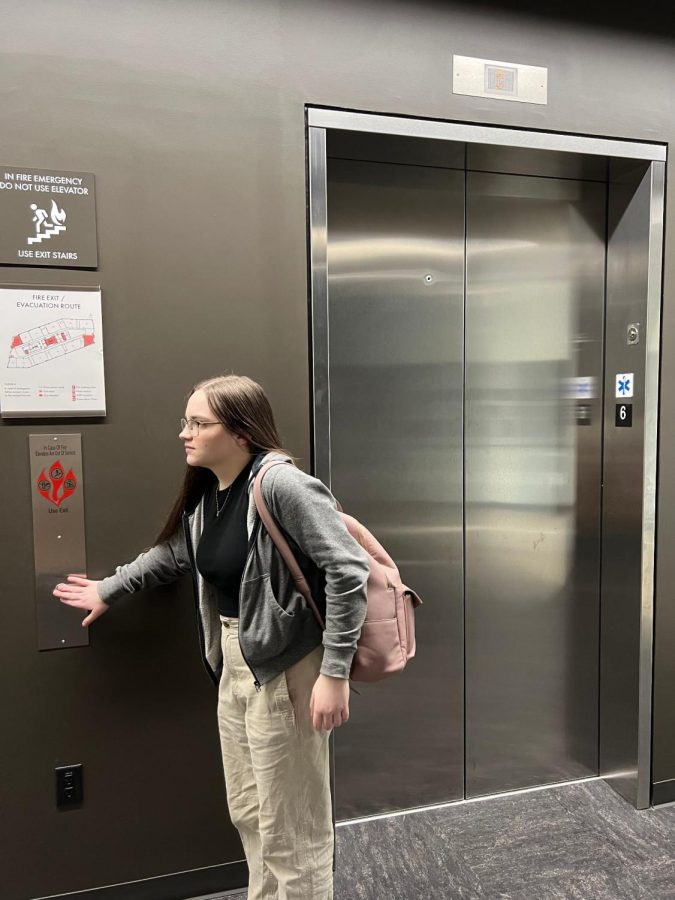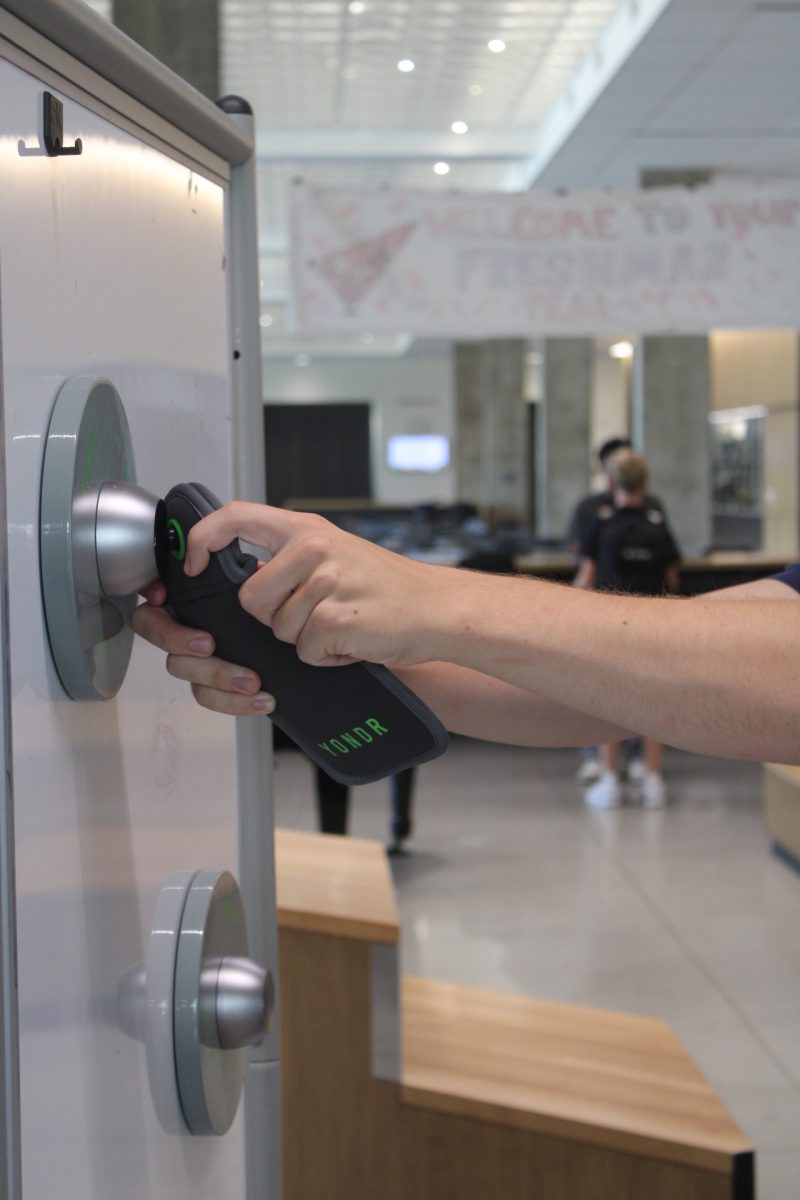Students voice concerns over elevator accessibility
Junior Monica Gibson has an elevator pass, she feels like some students are abusing the elevator as a resource if used without a pass. “I’m attempting to avoid the hallways due to crowds and noise levels,” said Gibson. “When everyone crowds into the elevator, it defeats the purpose.”
March 16, 2023
Some students say they are beginning to wonder how truly accessible the elevator passes are, especially for people with non-visible conditions or who don’t have the money to pay a replacement fee if their pass goes missing. School staff say they’ve been working on a commitment for access and equity while trying to protect the elevator for use by those who need it.
Emerson Quarles, a junior, founded the student-run equity team in part to address equity issues around the elevator. They had an elevator pass because of their chronic pain.
“I believe that mine has gotten stolen or lost in the school. I no longer have it,” said Quarles.
Quarles believes that charging a replacement fee adds barriers to accessibility because student passes can easily be lost or stolen.
“My goal would be to have suggested donations or replacement fees with financial aid in place,” said Quarles.
Lincoln’s business manager Jill Ross, handles the elevator pass replacement fees. By talking with the district, the provider of the elevator passes, Ross was able to negotiate the original price of $150 down to $50.
Though Quarles considers the lowered replacement fee to be a good start, they say there is still more to be done.
“I do not think that $50 should be the thing standing between anyone and getting the accommodations that they need,” said Quarles. “While I think that it is a huge move towards the right direction, I’d really love to sit down with [the people in charge] and talk about how we are making it accessible to students.”
Money isn’t the only issue related to elevator access. Campus security and some staff members check for appropriate elevator use. Sometimes this comes across to students as invasive. Particularly, if they have a non-visible condition. Quarles said that a teacher has even asked them “what’s wrong with you?”
As of now, how to have equitable access to the elevators remains unclear. However, Nurse Mary Johnson wants people to know the basics for how to apply for an elevator pass. Firstly, students should reach out to the office. They’ll receive an email with a google form with questions regarding the need for an elevator pass. The form asks to briefly describe the need for the pass, whether or not the student will need an evacuation chair, and asks a guardian to verify that they know the cost of the replacement fee. If a student needs a pass for longer than three weeks, they must contact Johnson and will debrief about the condition of their health. Contrary to what some students believe, a doctor’s note is not needed for the pass to be extended beyond three weeks.





